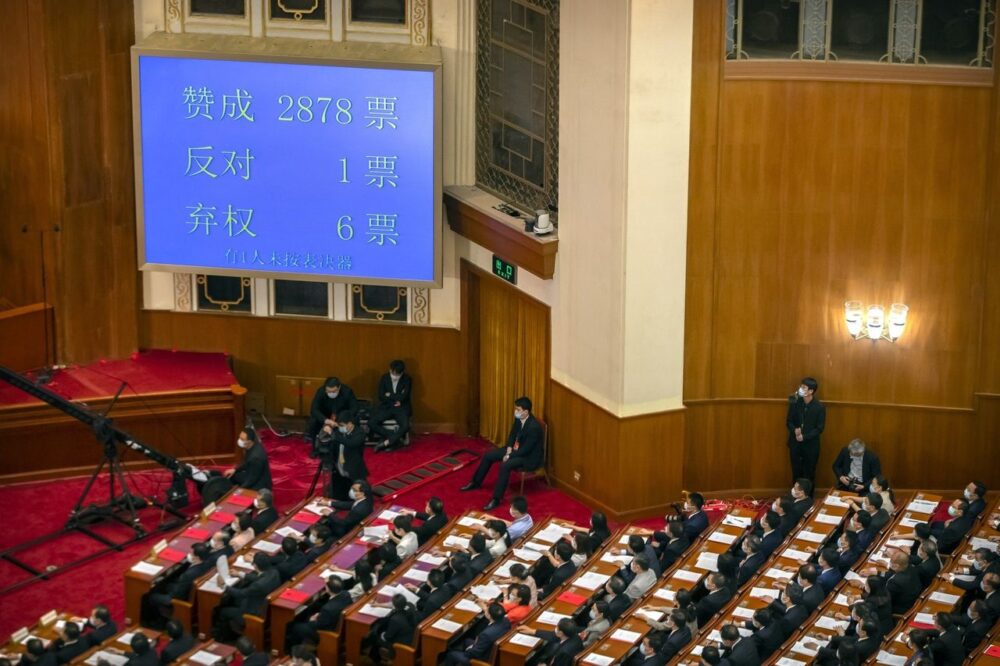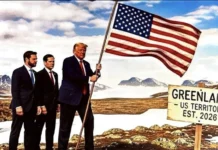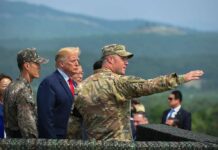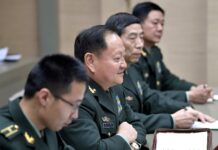How can the struggle go forward?
chinaworker.info
The economic crisis under Covid-19 has arrived in full force. Hong Kong’s unemployment rate in the period from March to May was 5.9 percent, which is higher than the 5.5 percent during the global financial crisis in 2009 and the highest in 15 years. Workers’ layoffs, wage freezes and forced unpaid leave have become commonplace. According to a survey from website Jobs DB, 40 percent of Hong Kong wage earners have had their salaries frozen this year, while the average salary increase is only 1.3 percent, far below last year’s 5.1 percent. In the most severely hit sectors, retail and tourism/hospitality, the average monthly salary has fallen 8.9 and 8.1 percent respectively.
At the time of the SARS (Severe Acute Respiratory Syndrome) pandemic in 2003, China’s economy was still in high growth mode, and the subsequent China-Hong Kong capital integration policies (including more liberalization, etc.) rescued the Hong Kong economy’s bottom line. Of course, it is the tycoons of Hong Kong who shared the gains among themselves, and the disparity between the rich and the poor has risen exponentially since then.
But today, the era of high growth in China is over, and this year, sensing incredible headwinds and uncertainty, the Chinese regime has even abandoned the practise of publishing a GDP target. The domestic and global economies are in recession, coupled with the Sino-US conflict and the reversal of globalization. Even assuming there is no second wave of the pandemic, hopes of a V-shaped rebound in the economy seem quite slim.
According to media reports, the Minimum Wage Commission intends to freeze the minimum wage (the level is determined at two yearly intervals). At the same time, Chief Executive Carrie Lam, the world’s highest-paid civil servant, has just received an annual salary increase of HK$120,000 to HK$5.21 million (US$672,000). It must be understood that freezing the minimum wage not only worsens the standard of living for low-paid cleaners and security guards, but also drags down the wages of the entire labour market.
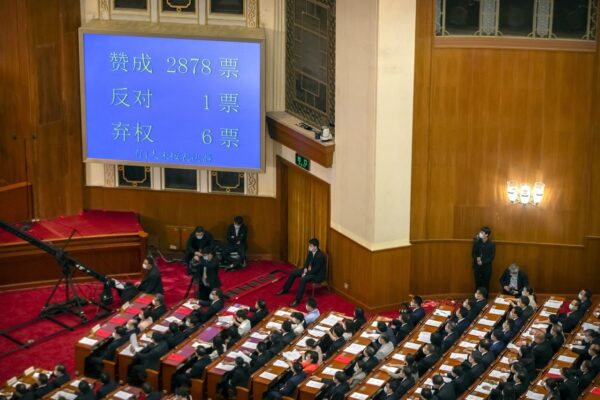
Bailouts for the capitalists
On the other hand, Lam’s government has successively spent HK$160 billion (US$20.6bn) in the Anti-epidemic Fund ostensibly to “safeguard jobs, support enterprises”, more than half of which has been used to subsidize the biggest companies while guaranteeing workers nothing. Every economic crisis is an opportunity for capitalists to suck more blood and rob the working class.
The Hong Kong government has spent heavily to bailout big business. As a result of the pandemic, various countries have implemented different travel restrictions and quarantine measures, hitting tourism, which has plummeted. On top of which, the global aviation industry has suffered a major blow. Cathay Pacific has fewer than 600 passengers per day, and suffered a loss of HK$4.5 billion in the first four months of this year.
The Hong Kong government used HK$39 billion (US$5bn) to save Cathay Pacific in a rescue deal that explicitly does not rule out further job losses or wage cuts. The company’s bailout is worth almost ten times the amount the government injected into the health service in additional spending to fight the pandemic.Big business refuses to share its wealth when it is earning profits, but now when it is losing money it asks for government bailouts, this is the gangster logic of capitalism.
Even if there is no second wave of the global pandemic, the depression in the global airline industry will remain for a longer period, adding to the risk that negative oil prices such as in May could occur again, which means the oil-hedging contracts held by Cathay Pacific could further lose money. An earlier report by investment bank Morgan Stanley states that even if the pandemic subsides in the third quarter, the likely losses involving oil-hedging contracts still mean Cathay Pacific is expected to lose an astronomical HK$10.7 billion for the whole year.
The government has injected another HK$4.5 billion into Ocean Park, a theme park, of which about HK$3 billion is being used to repay its bank loans. Official documents show the park’s main creditor is Bank of China (BOC), so it is no wonder the Hong Kong government prioritizes the “national interest” the moment they see a state-controlled bank at risk of losing money.
The Hong Kong SAR (Special Administrative Region) government has always practiced an extreme neoliberal system, refusing to use public money to expand public services such as public healthcare and education, and pervasively promoting privatization of the economy. But when Hong Kong’s biggest companies begin to collapse, they suddenly abandon neoliberalism. Paul Chan Mo-po, Financial Secretary, explained that this is because the market is “malfunctioning”. It turns out that a market economy that has always been “universal” and good at “self-regulation” will sometimes fail, making the politicians completely abandon the principle of “big market, small government”!
In fact, their only principle is to maintain their profits-first system.This pandemic is also exposing the true face of the bourgeois liberal pro-democracy politicians, the pan-democrats, revealing how they uphold the essence of capitalism. They have been apathetic towards the popular demand for introducing unemployment assistance. Civic Party leader Jeremy Tam even said he understood the government’s bailout of Cathay Pacific, but only thought the government should ask Cathay to promise not to cut wages or layoffs. Tam’s was the only “criticism” of the bailout from pan-democratic legislators.
In this severe economic crisis, because the pan-democrats’ political vision does not seek a way out of the crises of capitalism, in the end they can only consent to pro-big business policies in order to save the existing system. Socialist Action advocates the nationalization of any enterprise that reduces wages or lays off employees, to put these firms under the democratic control of the working class, without compensation to the capitalist owners.
National security law
The current political repression in Hong Kong is fierce and is linked with the crisis in the economy. Due to the economic crisis brought about by the pandemic and the escalating China-US conflict, Xi Jinping, as a dictator, has no choice but to make a show of his authority by suppressing Hong Kong, even if this risks reigniting the struggle of 2019. This ever-increasing cycle will eventually bring the Chinese dictatorship (CCP) regime into a revolutionary crisis.
The CCP’s national security law for Hong Kong is likely to be passed and implemented in July. Some within the establishment are proposing to move more slowly with the creation of new security organizations in Hong Kong in order to minimize the public backlash. There are also reports that Carrie Lam has proposed to the Standing Committee of the NPC, which formally passes the new law, to imitate Macau in establishing a National Security Committee (under this model the Chief Executive would chair this committee, allowing the Hong Kong government to maintain a toehold in the process).
Already, the Hong Kong government’s Security Bureau has hastily established a ‘Political Bureau’ to monitor demonstrators, collect intelligence and train a political police unit. However, the Chinese dictatorship seems to prefer an agency that overrides the local judiciary and parliament and directly follows orders from the Hong Kong and Macao Offices (the Chinese regime’s representative offices based in Hong Kong), or may even prefer the mainland’s National Security Bureau to operate directly in Hong Kong.
The political tasks that the CCP’s decree entails have become a heavy burden for Hong Kong’s ruling camp. The pro-government faction fears that in the Legislative Council elections scheduled for September, they will suffer another setback like last year’s District Council elections (in which opposition candidates won 86 percent of the seats) and they can only pray that the Chinese regime will order more opposition candidates be disqualified.
Now, both the government and the pro-government political parties are sounding off, accusing those who oppose the national security law of “violating the Basic Law” (constitution) in order to mark them ready for disqualification. This increased repression will not make public grievances disappear. Hong Kong is ushering in another bigger storm.
Since the national security law was passed in the NPC in May, the seething anger of public grievances has already exceeded the mood that sparked millions of Hong Kong people to march in June last year. However, Carrie Lam has used social distancing regulations to enforce a de facto martial law, coupled with more oppressive police deployments and significant additional crowd control hardware. Since May, many online appeals to protest have been suppressed by the police digital security squad. Unorganized and fragmented “be water” struggles can no longer provide any way out. What is needed now more than ever is to establish working-class organizations in communities and workplaces and build a democratic framework for the movement.
How can the struggle go forward?
In the early years of the rise of the localists (right-wing Hong Kong nationalists and pro-independence advocates), in the period from 2014 onwards, the pan-democrats did not recognize, and were unwilling to expose, the localists’ anti-democratic and xenophobic features. Instead, they repeatedly extended an olive branch, hoping for “mutual cooperation”. But as in the Umbrella Movement (September-December 2014), when the movement is protracted and a stalemate sets in, the localists often dress themselves as a radical alternative in order to gain from the masses’ anxiety and desire for a way out.
Although the localists did not intervene in last year’s movement as an organized force, their political voice relayed on countless online forums began to hover within the movement. They attacked the pan-democrats from the right, but also counterposing a “hard” approach to the pan-democrats’ moderation. A group of young politicians who advertise themselves as “political amateurs” (many of whom also claimed to be “localists”) were already preparing to stand for election to the Legislative Council. They often criticized the old pan-democrats for not fighting hard enough, but they have not put forward any specific plan to organise and advance the mass struggle either. The so-called “if we burn, you burn with us” approach does not amount to more than parliamentary struggle and vetoing the government’s budget. This group of “amateurs” is even more vague in terms of any social program than the pan-democrats and often advocates market solutions, such as opposition to a universal pension system (despite chronic levels of elderly poverty), with the argument that more “new immigrants” (i.e. mainland Chinese) would arrive to take advantage of such a reform.
In addition, when Demosistō (Joshua Wong’s group) mildly criticized Trump and was subsequently attacked by netizens on LIHKG, an online platform, Wong’s group apologized. In recent years, Demosistō has been “negotiating with a tiger for its hide”, requesting Trump and other Western leaders support Hong Kong democracy and spreading illusions about imperialism coming to the aid of the Hong Kong democracy struggle.
Now that the China-US conflict is heating up dramatically, the entire US political arena is desperately trying to play the anti-China card to whip up nationalist sentiment and strengthen their position in the inter-imperialist power struggle. As Trump’s hold on the US presidency slips, some pro-US figures like Joshua Wong and Demosistō are hedging their bets between Trump and the Democrats. But there are significant numbers of blind Trump loyalists who smear anyone who attacks their hero, including the mass anti-police and Black Lives Matter protests in the US, which these groups denounce as CCP-backed!
In the face of pressure from the far right localists, and without any organised left force or counter pressure, the liberal pan-democrats will always make concessions and adapt their policies rightwards, hoping to pander to supporters and pick up votes from the far right. After all, all these forces just want to oppose the Chinese dictatorship within the framework of capitalism and within the framework of Hong Kong, with no political aspirations beyond the border. To resist the right-wing line, which ultimately would lead to the derailment of the democracy struggle, the only solution is the establishment of an independent working class political party.
Now the struggle must change direction, from “be water” loose and de-centralized resistance to democratically organized working-class struggle. It is necessary to establish labour unions led by workers, not guilds of managers and small business owners, or NGO-type advocacy groups. Trade unions must organize against the power of the capitalists, defend labour rights, and build a democratic structure for all members to make decisions together.
There is no shortcut to promoting a real strike. Press conferences and media propaganda alone is completely insufficient. A strike and a union need to be rooted and organized in the workplace.
Nationalism or international grassroots struggle?
Socialist Action advocates genuine international solidarity to connect with the mass struggles in other countries against their own rulers and to unite the working class and grassroots movements around the world, rather than praying to self-seeking foreign governments and capitalist politicians to “save” Hong Kong.
We oppose both Chinese imperialism and American imperialism and the conflicts they are waging against each other, whether it is economic warfare, technological warfare, or military warfare. The result of this competition is more attacks on labour rights, more measures to suppress democratic rights, more militarization and nationalism; the biggest victims will always be the working class. Ending dictatorship and securing democratic rights can only be achieved by mass struggle of the people themselves, not imposed by outside governments — this is shown by all history, including that of the US itself.
Both Chinese and American nationalism seek to undermine and block unity of the peoples’ struggles all over the world, just as Hong Kong pro-US elements accuse the anti-racist struggle in the US of being “riots fomented by the Chinese Communist Party”, so do some American leftists with illusions in the Chinese dictatorship dismiss the Hong Kong mass struggle as a “colour revolution”. Only an internationalist program that unites the working class to end capitalist oppression in mainland China and elsewhere can defeat both the CCP dictatorship and capitalism worldwide.

